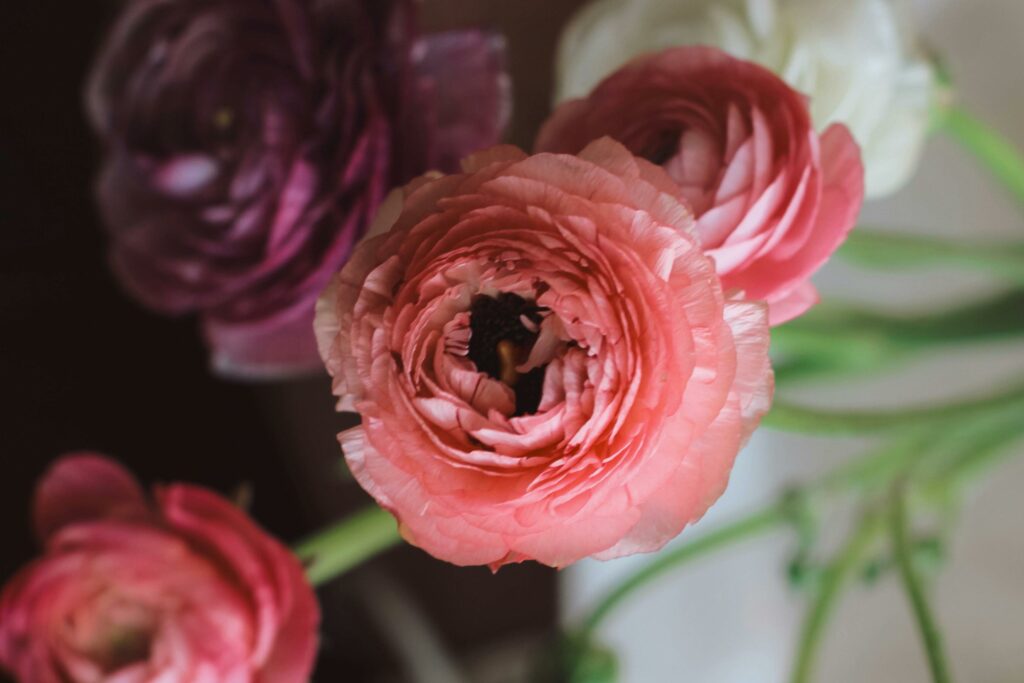Flowers have conveyed emotions and messages for centuries, making them powerful gifts when chosen thoughtfully. Here’s a florist guide to help you select the perfect blooms for any occasion.
Classic Romantic Flowers
Roses are the quintessential symbol of love, but their color matters greatly. Red roses express deep romantic love and passion, making them ideal for anniversaries and Valentine’s Day. Pink roses convey admiration, gratitude, and gentle affection—perfect for new relationships or expressing appreciation. White roses symbolize purity, innocence, and new beginnings, making them popular for weddings. Yellow roses represent friendship and joy, while orange roses express enthusiasm and desire.
Tulips carry messages of perfect love and are associated with springtime renewal. Red tulips declare true love, while yellow tulips once meant hopeless love but now represent cheerful thoughts and sunshine. Purple tulips symbolize royalty and elegance, and white tulips are used to apologize or express worthiness.
Friendship and Gratitude
Sunflowers radiate warmth, adoration, and loyalty. Their bright, cheerful appearance makes them excellent for expressing admiration or celebrating someone’s positive spirit. They’re particularly meaningful for long-lasting friendships.
Chrysanthemums have varied meanings across cultures. In many Western countries, they symbolize friendship, joy, and optimism—especially in red, yellow, and white varieties. However, in some European countries, they’re associated with funerals, so consider your recipient’s background.
Gerbera daisies represent cheerfulness, innocence, and purity. Their vibrant colors make them perfect for brightening someone’s day or celebrating achievements without romantic implications.
Sympathy and Remembrance
Lilies are deeply associated with sympathy and the restoration of innocence to the soul of the departed. White lilies specifically symbolize purity and virtue, making them traditional funeral flowers. Stargazer lilies can express sympathy while also celebrating the life lived.
Carnations have different meanings by color. White carnations represent pure love and innocence, often used in sympathy arrangements. Pink carnations symbolize remembrance, while red carnations express admiration and deep love.
Orchids convey lasting beauty, strength, and love. Their exotic elegance makes them appropriate for expressing sympathy with sophistication, symbolizing eternal love.
Celebration and New Beginnings
Peonies symbolize romance, prosperity, good fortune, and a happy marriage. Their lush, full blooms make them popular for weddings and celebrations of new chapters in life.
Daffodils herald new beginnings, rebirth, and fresh starts. They’re perfect for celebrating new jobs, new homes, or the arrival of spring. They represent hope and resilience.
Irises represent hope, faith, and wisdom. Purple irises specifically symbolize compliments and wisdom, while blue irises represent faith and hope. They’re excellent for graduations or milestone achievements.
Thoughtful Gestures
Hydrangeas express heartfelt emotions and gratitude. They can also symbolize understanding and apology, making them versatile for mending relationships or expressing appreciation.
Lavender represents devotion, calmness, and grace. Fresh or dried lavender makes a thoughtful gift for someone who needs tranquility or to express your devoted friendship.
Forget-me-nots obviously symbolize remembrance and true love. These delicate blue flowers are perfect for keeping someone in your thoughts or celebrating enduring connections.
Sweet peas convey blissful pleasure, gratitude, and departure after a lovely time. They’re ideal for thank-you gifts or saying goodbye with warmth.
Romantic Alternatives
Ranunculus symbolize radiant charm and attractiveness. These rose-like blooms express the message “I am dazzled by your charms,” making them romantic without the traditional red rose.
Gardenias represent secret love, purity, and joy. Their intoxicating fragrance adds to their romantic symbolism, expressing refined beauty and sweetness.
Poppies symbolize remembrance, imagination, and eternal sleep. Red poppies specifically honor fallen soldiers, while other colors can represent imagination and success.
Tips for Gifting Flowers
Consider the recipient’s personal preferences above traditional symbolism—someone’s favorite flower will always be appreciated regardless of its meaning. Be mindful of cultural differences, as flower symbolism varies significantly across cultures. The number of flowers can also matter in some traditions, so research if you’re gifting to someone from a different cultural background.
Combine flowers to create layered messages, pairing blooms that complement both visually and symbolically. Include a card explaining your choice if you’ve selected flowers for their specific meaning, as many people aren’t familiar with traditional flower language.
By understanding flower symbolism, you can add depth and intention to your gifts, transforming a beautiful bouquet into a meaningful expression of your feelings.

